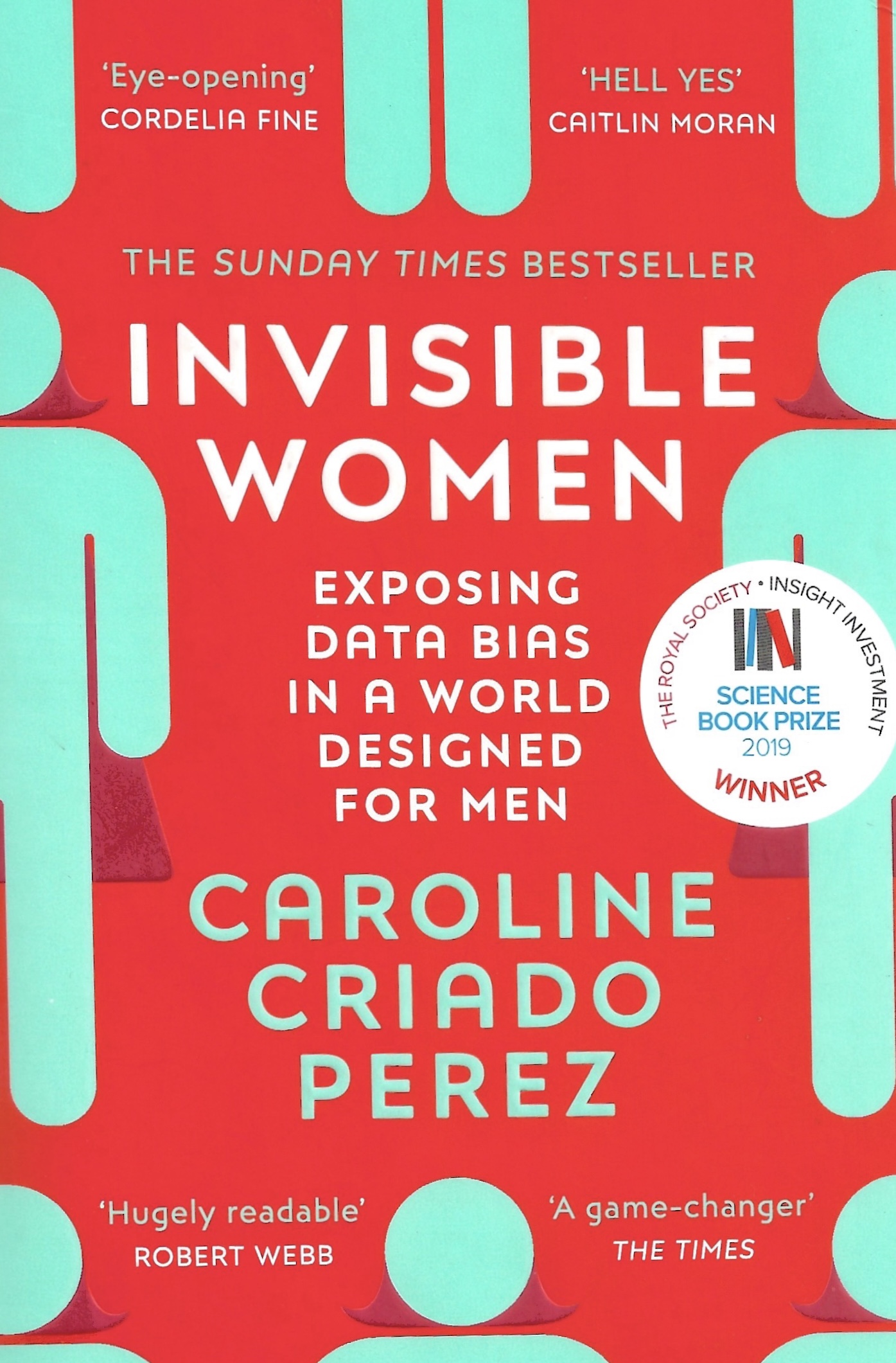Invisible Women

IN Invisible Women, author Caroline Criado Perez highlights systemic, implicit biases against women that are so staggeringly fundamental, they are downright revelatory - if you’re a man. Women reading the book will likely nod knowingly & resonate with the rightful tone of frustration weaving through the book. Here are a few examples of the several data-backed, historically male-driven blindspots detailed in the book. Most automobile companies only design car safety features for the average sized human male. In the construction sector, everything from a bag of cement to a brick is sized to be wielded by an average sized human male. Most toilets in the world have a 50-50 area split, which is actually not fair at all, considering the space and time needed for a woman to use the loo with reasonable comfort is more compared to a man. These and other systemic biases impact women on a spectrum of badness - with the worst cases including a disproportionately higher risk of cancer from exposure to toxic chemicals deemed acceptable by standards designed for male skin which is typically thicker.
THERE are places in the world that are thinking about these systemic gender data gaps and actioning towards plugging them. The author points out several research findings and concrete policy initiatives based on them. Most such examples come from Europe, though, with Asia accounting for examples of problems and biases. There’s a sense, in reading the book, of an imposition of equal expectations on developed and developing countries to assess and solve for gender data gaps. Every developing country I can think of is a victim of deeply damaging colonialism, in many cases, over hundreds of years, where contemporary governments are left grappling with a plurality of crippling problems as they work on emerging out of methodological & cultural biases subliminally imposed by colonizers. With Europe however, I cannot help but wonder whether luxury & wealth, built historically on the backs of colonies, brings a position of privilege for radical policy measures such as completely revamping urban planning and transport policies. The modern lifestyles we lead are a result of a plurality of policies, inventions & ideologies from the eras of European colonialism & the Industrial Revolution, seemigly none of which were formulated to account for the female gender. Those inventions and processes are still very much a part of our lives in a direct or derived manner & are today dictating many choices made by women every day. A good step towards solving for the gender data gap, therefore, seems to be revisiting and revamping policies with proportionate female presence.
I realized as I read the book though, that my understanding and perspective will be implicitly biased due to my gender. While the book justifiably drew my attention to extremely fundamental gaps detrimental to women in so many walks of life, I will likely be unable to fully grasp the magnitude of just how large the gaps are. The conclusion I came to is this - if you’re a man who cares about women, share this book with as many women around you as possible and enable them to read it. Have conversations with them on their understanding of the book. I’m absolutely certain that they will be illuminatory beyond anything you can comprehend on your own. Finally, work with the women in your life to start ensuring their participation in choices that define your daily life. While getting governments and policy makers across the world to act on solving for the gender data gap with the same level of enthusiasm is a long shot, each human male can do his bit towards making a start by partnering with the women around him.